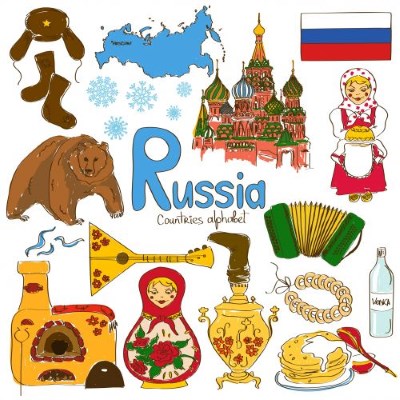
I can hear you saying, ‘What a dumb question, yellow of course!’.
One of my classmates asked this question the other day, which didn’t even make sense to me even after knowing the topic of the session. What was this question supposed to teach me? The answer choices were A) Green, B) Yellow, C) Purple, however, there wasn’t even another answer possibility then yellow from my point of view. And appearantly that was the case for the whole class because everyone answered as yellow.
During the discussion of the purpose of the question, some students questioned ‘green’ as an answer possibility. Even though I didn’t think about it in the beginning, hearing of it made me think of partial truth in that choice. Indeed, bananas are green while they are still ripe the came up with ‘green’. Hearing them reminded me that bananas are, indeed, green while they are still ripe.
This particular moment made me realize the automaticity in our lives. Our brains are coded in a perfect way that we have certain automaticities that gained a seat aff evolution, and that helps us get around from one day to the other in a faster and safer way. We have certain cognitive schemas and associations in our minds that we don’t even realize using for the simplest to the most complex things. Schemas that help us reach judgments faster, develop expectations, and in the end behave accordingly. Those schemas usually lie behind the process of identification, such as thinking that it is a wheel when we see a round, moving object or a banana from the yellow, u-shaped object.
Where Does The Russia-Vodka Association Come From?

Those schemas apply to broader context than just identifying the yellow fruit or the round object but also to certain group identifications and categorizations which help us organize our social environment in a way that we know what to expect more or less from someone or someone resembling a certain group. An individual is using those schemas when he/she says ‘He looks like a Muslim so he is probably from either Morocco or Turkey. Don’t get too close to him, honey!’ to his/her child when coming across a bearded, dark-skinned male while walking in the Hague. Or, a funnier and more familiar example, when we expect our German friends to love beer.
What I am trying to say is that we have these cognitive schemas, implicit associations, and stereotypes perfectly coded in our minds which we apply to every single situation in our daily lives from locating the fruits section in the supermarket and identifying a fruit to generating expectations from a person’s race or country of origin.
One example, that came up again during class, which emphasizes the globalized usage of these associations and their automaticity is the Russia-Vodka duo.
We were doing a world stereotype map exercise during which everyone had to come up with certain known stereotypes about different countries. Amongst them, Russia stood out with its vodka association that was mentioned in every single group. However, the interesting fact was that nearly no one in the class had personal experience regarding a visit or interaction with Russia before.
I haven’t been to Russia before or met a Russian; but when you ask me about it I would list ‘vodka, mafia, beautiful woman, matryoshka doll, cold, and furry hats’ as the first words that come to my mind. But how did I get this impression? How did I generate such strong cognitive associations that I am so sure of how a Russian should look like or should like?
To come to a concrete answer is hard, however, it is probably due to the environmental exposures that I got from the books, animations, movies or memes that I have been exposed to throughout years. And what is pitiful is that I never questioned the accuracy of these associations but just continue my life as if they were all true.
Digital Media’s Fulfilling Effect On Stereotypes
We are being exposed to way too many things in either social media through different cultural, interracial, inter-gender posts or in general through digital media with all the movies, music clips, news, funny videos, etc..
One study (Weisbuch et al., 2009; Science) that was mentioned in another class of mine studied these TV Show exposures that are currently increasing. They observed the non-verbal, unscripted interracial communication that appears in some of the most popular shows like Greys Anatomy, CIS, etc. and found that White actors showed more positive non-verbal behaviors towards their White co-actors compared to their African American co-actors. This study shows the extent of such biases and their automaticity while also exemplifying one of the countless implicit associations that we are exposed to even through the simplest things that we do.
Aside from such implicit exposures that we get through different digital media contents, we are also being exposed to explicit stereotypical associations and statements in result of the increasing social numbness and diffusion of responsibility in social media platforms.
In psychology, we use the term diffusion of responsibility which simply means that a person feels okay doing certain things or expressing certain attitudes even if they are not socially approved because they can’t be deemed responsible due to the source ambiguity. Social media platforms create this ‘free sharing environments’ and ‘anonimity’ which increases social numbness towards certain important topics while decreasing the responsibility and corresponding consequences to such posts.
Considering the fulfillment effect that the social platforms generate especially about sensitive topics as stereotypes and therefore strengthening the discrimination tendency in our society, do we still want to support freedom in media. Might there be an optimum level for this freedom/limitations?



Hello! I’d like to start by saying thank you for acknowledging such an important issue – at least one that I always have considered to be important for when it comes to stereotypes and the role of digital culture. I often find myself having constructed a stereotype about a certain group of people or even an individual; regardless of my efforts into getting rid of them ever since I moved to the Netherlands and became exposed to the bigger picture. A huge part of my sensibility comes from the fact that I, as a Turkish person, have felt often stereotyped through various means of communication (verbally and visually in real life and virtually through text and images). Given that the digital world holds such an important place in our lives in constructing our judgements via true and mostly false information; its harming effects resulting in political incorrectness cannot and should not be denied. Misrepresentations are increasingly visible as we scroll down in any platform, not to mention how people actually take them seriously without consulting their own ethical values. Acknowledging this, might be the first step into actually preventing it one day:)